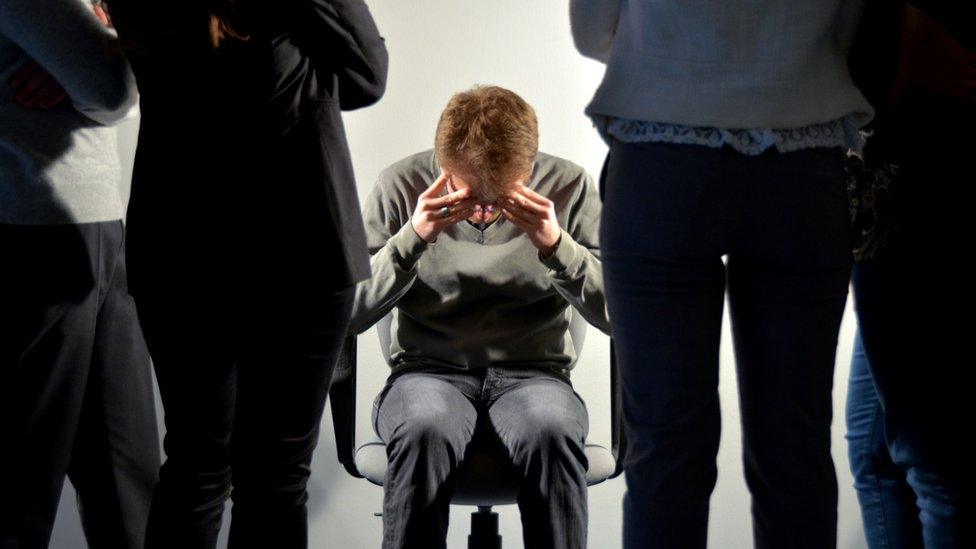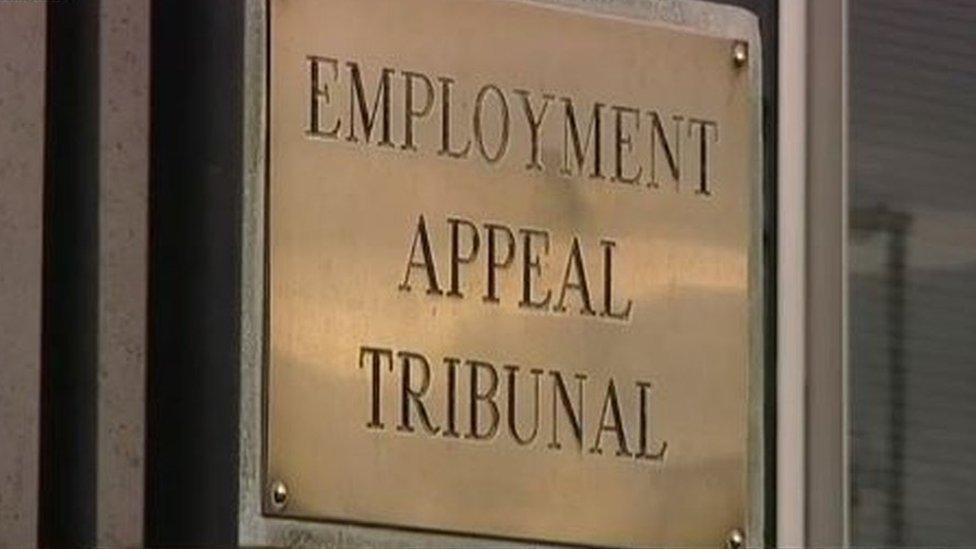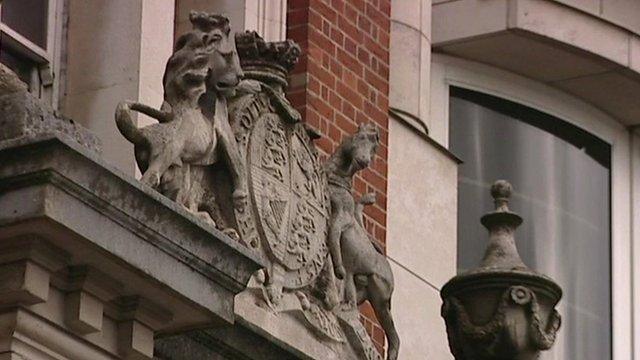Reality Check: What impact have employment tribunal fees had?
- Published
The claim: The Liberal Democrats say that tribunal fees "prevent many from pursuing good cases".
Reality Check says: There is evidence for this and charging fees for employment tribunals has led to a bigger fall in the number of claims than the government expected.
The Liberal Democrats have said they would scrap employment tribunal fees in order to "strengthen enforcement of employment rights".
The fees were introduced when they were in government with the Conservatives in July 2013 - taking a case to an employment tribunal had previously been free.
At the time one of the reasons it gave was that fees could: "disincentivise unreasonable behaviour, like pursuing weak or vexatious claims".
Weak claims are presumably ones that are less likely to be successful, while strong ones would be more likely to be successful.
The Labour manifesto said the party would "reverse the unfair employment tribunal fees which literally price people out of justice".
There was no mention of employment tribunals in the Conservative or UKIP manifestos.
Employment tribunals are in the process of being devolved - we'll start with the situation in England and Wales.
Individual claimants now have to pay a claim fee, external of £160 or £250 depending on the type of case and a further £230 or £950 if the case goes to a hearing.
There is means-tested help, external available with paying tribunal fees. If you win the case then your employer might be forced to pay your tribunal fees but that is not automatic.
After the fees were introduced the average number of total cases fell from about 5,000 a month to about 1,500 a month.
The government had a review earlier this year, external to look at the impact of charging fees.
It concluded that the introduction of fees had been successful in the sense that it had raised £8.5m to £9m a year and encouraged people to use free mediation services, but it also said that: "The fall in claims has been significantly greater than was estimated when fees were first introduced."
As a result, the government is consulting on whether changes are needed to the Help with Fees scheme to make it easier for people on lower incomes to get their fees paid.
Brian Doyle, president of employment tribunals in England & Wales said in his submission to the review, external: "We do not consider that there has been a reduction in weak or unmeritorious claims. Had that been the case we would have expected the percentage of successful claims to have risen, whereas in fact it has declined slightly."
Statistics presented as part of the review, external show that the proportion of successful claims fell from an average of 15.3% in the nine months before the introduction of charging (62.6% were withdrawn before a hearing) to an average of 12.6% since then (with 59.0% being withdrawn).
"Cases are being upheld in the same proportions as ever - there are just fewer winners and fewer losers," Gareth Brahams from Brahams Dutt Badrick French, who is chair of the Employment Lawyers Association told BBC News.
In Scotland, fees are also charged for employment tribunals. As part of last year's Scotland Act, external, responsibility is in the process of being passed to the Scottish Parliament. The Scottish National Party has promised to abolish charges once the power is available to the Scottish government.
The SNP has also pledged to abolish the fees as part of its Westminster campaign, which means it wants to see them abolished in England and Wales as well.
And it is consulting on proposals to move some of its functions to the First-tier Tribunal for Scotland, which brings together a number of other legal functions, although there has been some opposition to this.
No fees are charged by employment tribunals in Northern Ireland.
Update 16 June 2017: This article was amended to clarify who currently has responsibility for employment tribunals in Scotland.



- Published4 November 2016

- Published9 November 2015

- Published27 March 2015

- Published29 July 2013
